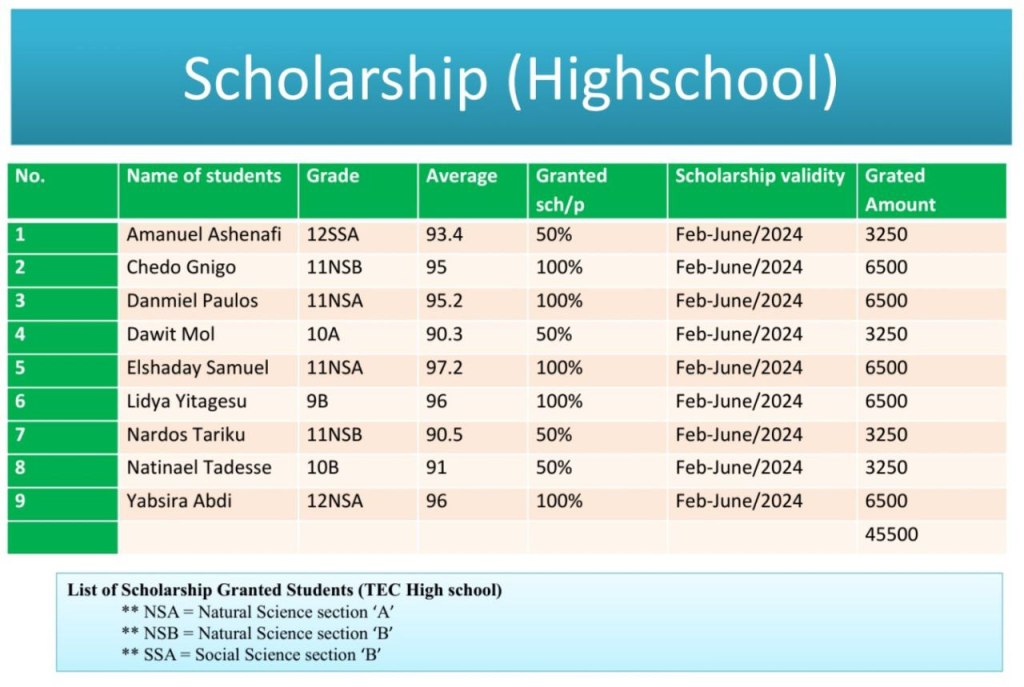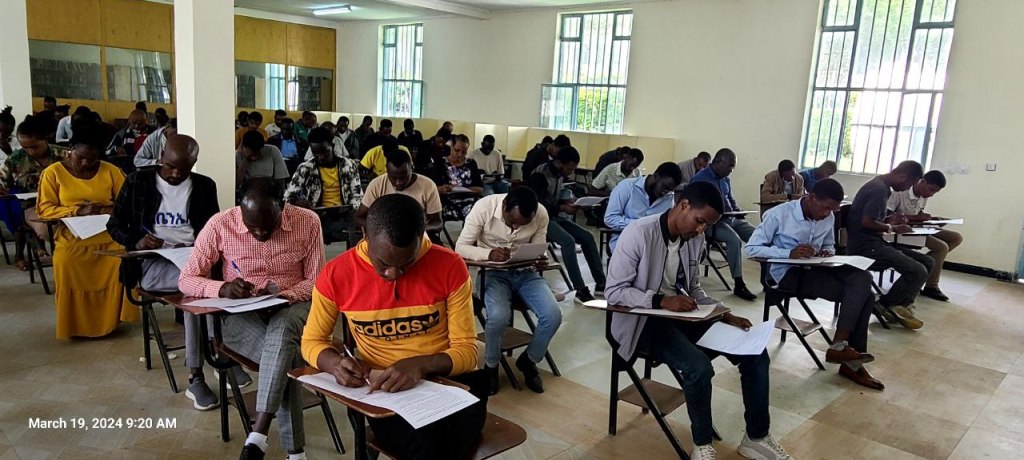Empowering Women for Effective Ministries in
the Mission of God and Missional Churches
“I commend to you our sister Phoebe, a deacon of the church in Cenchrea. I ask you to receive her in the Lord in a way worthy of her people and to give her any help she may need from you, for she has been the benefactor of many people, including me.” Romans 16:1
Inspired on Phoebe, the remarkable deacon lady in the church of Cenchrea, we want to follow Paul’s recommendation and receive mature women of the Ethiopian church, to equip them to meet the dire needs of workers in the Lord’s harvest in Ethiopia and abroad. Our aim is to prepare them to become what the name Phoebe means: ‘pure, radiant and bright’ servants of Christ to engage in diverse ministries in the mission of God and to plant missional churches in Ethiopia.
Practical Theology is at the center of the Phoebe program, providing for the student’s needs in the areas of knowledge, spiritual formation, ministry competence and intercultural relational skills.
Our Vision
We want to see Ethiopian women equipped to serve and shepherd missional churches with integrity of heart, wisdom and skillful hands.
Our Purpose
Provide a program of contextualized training with an adequate curriculum, tools, events and processes in order to attain the realization of our vision.
Our Values – As a Missional Evangelical College we value:
- The Word of God as the foundation of everything we do.
- People above programs.
- Networking and partnerships as one of the most strategic ways to achieve our vision and purpose in equipping effectively missional pastors.
- Transparency and openness in our relationship with all our partners, among the staff members and trainees.
- Excellence and quality in everything we do.
- Efficiency and effectiveness in planning, developing curriculum and the carrying-out of the Phoebe training programs.
- Creativity and innovation that will promote a better performance of our task in equipping skillful women to lead and serve the church.
- Cultural diversity, celebrating our interdependence.
![]() The Profile of PHOEBE ministers
The Profile of PHOEBE ministers
The objectives of the Phoebe training program are determined by the holistic profile of a godly woman leader. So, all the events, processes, curriculum and other resources that will be put together to achieve our andragogical goals have the focus on the desired profile of a Phoebe leader.
The profile of a godly woman leader with integrity of heart, wisdom and skillful hands encompasses three important and complementary areas: Head (Knowledge & wisdom) + Heart (Character qualities) + Hands (Skills & competences). This profile can only be a result of a healthy environment where the training takes place based on sound premises and philosophy of education.
![]() Knowledge
Knowledge
A prepared woman with integrity of heart and skillful hands knows:
- God, His character and attributes
- Jesus Christ as Savior and Lord
- The Holy Spirit, His person and work
- The Word of God, its authority and inerrancy
- The nature and mission of the Church
- The essential doctrines of the Reformed Christian faith
- The nature of man
- The nature of the spiritual beings – angels & demons – and our spiritual warfare
- The dynamics of the new life in Christ
- The spiritual disciplines
![]() Character Qualities
Character Qualities
A prepared woman with integrity of heart and skillful hands is:
- Evidencing in her life the qualities described in 1 Tm 3:1-12 & Tt 1:5-9
- Humble and a servant at heart
- A woman of prayer
- Always seeking God’s will in everything she does
- Able to listen to God and to others
- A woman with undivided heart displayed in a wholeness of life
- Coherent in her speech, thoughts and actions
![]() Skills and Competences
Skills and Competences
A prepared woman with integrity of heart and skillful hands is able to:
- Equip others for meaningful ministries
- Think, plan and work on a long-term perspective
- Relate well and bridge the network with non-Christians
- Work with people from different cultural background, cast or age: a team player
- Teach and preach effectively in different context
- Communicate her vision with clarity and to influence others
- Organize her own life, family and the ministry of the church (administration skills)
- Inspire, involve and lead her flock in a holistic ministry perspective
- Master principles of stewardship and finances well
- Shepherd, encourage, motivate, mobilize, and give counsel
- Defend and advocate for the Reformed Christian Faith
- Prepare the church liturgy and administer the sacraments
- Lead and develop solid children’s and family ministries
![]()
![]() Sound Premises for a healthy PHOEBE Training Program
Sound Premises for a healthy PHOEBE Training Program
- The objectives of the training program are determined by the abilities, competences, knowledge, and character qualities of the PHOEBE leader profile, required for a godly and effective ministry.
- The training program must be closely related to the church, because the learning is enhanced when it happens in the context of the community.
- The structures of training, its environment and the relationships around it must be consistent with the objectives of the training.
- The training strategies and methodologies must be andragogically oriented and adjusted to the learning preferences, and to the thinking patterns of the trainees.
- The training strategies must be built upon and incorporated to the experience of the trainee.
- The training theories and objectives of our program are based on the Scriptures and the general revelation.
- The teaching must be immediately appropriated, followed, and applied. A designed process must follow teaching events.
- The learning of new skills must include instruction, demonstration and immediate guided practice opportunities.
- The character qualities and leadership values are effectively communicated only when the teaching is exemplified and reflected in the trainer’s life.
- The training program not only equips the trainee for effective ministry, but also for a continuous learning through constructive auto-didacticism.
![]() The philosophy of the PHOEBE Program
The philosophy of the PHOEBE Program
- Both the environment and the curriculum of the PHOEBE program is derived from the woman leader’s profile that we want to see in each student of the graduating class.
- The PHOEBE program gives equal emphasis on the three essential leadership areas:
The head – the cognitive aspect; the hands – leadership abilities and skills; the heart – the leader’s life and character.
- The environment will be determined by the training area in focus.
- The cognitive formation is better obtained using contextual formal methods in a classroom or library contexts.
- The skills and abilities are best acquired though non-formal methods in the context of their workplace or praxis.
- The relational and affective aspects of life and character are developed, cultivated and tested through informal methods in the context of community. PHOEBE Train
- All relationships must be centered in love, acceptance, mutual respect, trust, appreciation and affirmation. The basis for this kind of relationship is the position of every believer in Christ.
- People have priority over programs, paperwork and rules.
- An environment of collaboration, respect and fellowship should be maintained at all levels between students of different denominations, local churches, Christian organizations, ethnic origin, clan, also between trainers and trainees.
- The relationship trainer-trainee to be institutionalized with the goal of modeling future leaders must have the Lord Jesus as model: servant, wholesome, full of grace and mercy.
- The course of action to be taken to each aspect of the PHOEBE program must be strategic and focused: Women leaders equipped to shepherd missional churches with integrity of heart and skillful hands and being able to develop a new generation of likeminded leaders.
- The purpose of the training is clearly explained to the trainees before and during the training program.
- Learning objectives must be set up for each course, event and processes, in order to maintain the pedagogical focus of the teaching activities.
- The central theme of PHOEBE is the relationship of the trainee with God, while the focal point is the equipping of women leaders to shepherd missional churches and to lead integral ministries.
- The training is at the same time centralized in grace and aimed to the learner, with emphasis in the personal application of the learned truths. It’s vital the use of a variety of didactic methods and learning approaches.
- Prayer and intercession for each other and leadership growth must be one of the cornerstones of Phoebe.
- A qualified trainer has a consistent walk in with the faith, is experimented, and has the required abilities to teach a specific subject in the PHEBE program.
- Those who teach skills must have experience in the area they are teaching.
- The Trainer must seek to know and understand the cultures of the trainees.
- The trainer must be a learner, a servant-pastor, and a disciple committed to disciple the trainees through her personal involvement with them, and by being an example of the biblical principles in her life.
- The limits of authority of the trainer are clearly established by God’s Word.
CURRICULUM OF PHOEBE DEGREE TRAINING PROGRAM
Course duration: This is a four-year degree program, in English. One of the goals to be considered in this program is possibility of the students doing one semester of mentored on-the-field praxis. The possibility of a follow-up training after graduation could be offered as ongoing learning and development of the students.
The curriculum is a competence-oriented program, designed to achieve the outcomes of our Phoebe profile.
- On each semester of the four years of the Phoebe program, the courses will have a balanced focus on the areas of knowledges, skills and character building through spiritual formation.
- At the end of each semester of first year, the student will have an assigned ministry praxis to serve her church on the areas of ‘use your talent’, children’s ministry, and spiritual formation.
- At the end of each semester of second year, the student will have assigned ministry praxis to serve her church on the areas of children’s ministry, ethnography, spiritual formation.
- At the end of each semester of third year, the student will have assigned ministry praxis to serve her church on the areas of preaching, teaching, pastoral care and diaconia.
First come served first!
Donation: You can donate any coin to support this program that you have hand in empowering Ethiopian Christian women for God’s mission via:
Commercial Bank Of Ethiopia Hawassa Branch
EECMY-SCES Tabor Evangelical College
Swift Code: CBETETAA
Account Number: 1000013466606
Email: taborevan@gmail.com









